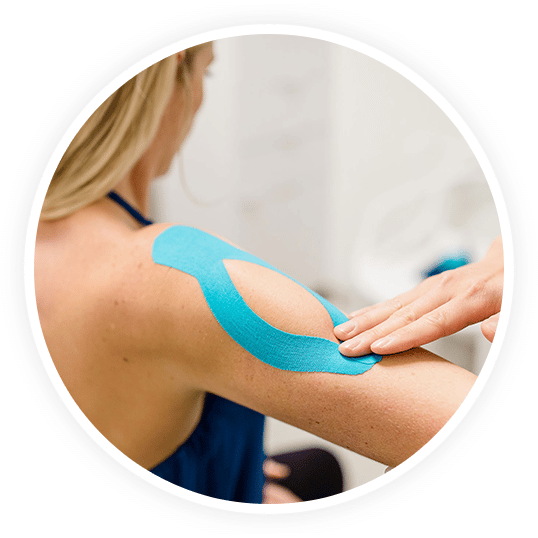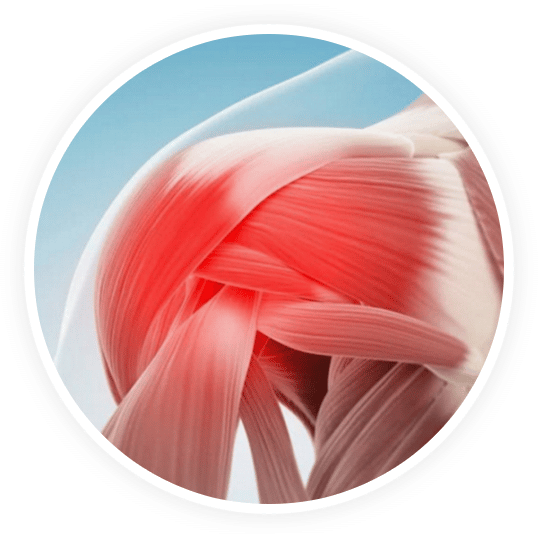
Loading. Please wait.

Loading. Please wait.
Could you imagine your shoulder becoming stuck and unable to move? We use our shoulders more than we think for simple tasks like brewing our morning coffee to working out at the gym. But when your shoulder is frozen, life gets a lot harder. Unfortunately, having a frozen shoulder is an actual medical condition.
Frozen shoulder happens when you gradually lose movement in your glenohumeral or shoulder joint. This joint is comprised of a ball and socket. When functioning normally, it’s one of the most flexible joints in the body. When you have frozen shoulder, however, the joint becomes stuck, and movement is limited.
Let’s dive in and answer some of the questions you’re probably thinking about right now.
Though the precise cause is still unknown, frozen shoulder is most often caused when your shoulder is immobilized due to an arm injury or other reason. Another common factor in frozen shoulder cases is inflammation and adhesions..
The tissue that surrounds your shoulder joint and holds it in place is the capsule. Typically, your shoulder capsule has folds that expand and shrink as your arm moves into different positions. When you have frozen shoulder, your shoulder capsule becomes inflamed, and scarring develops.

Usually, frozen shoulder develops slowly through three different stages:

During this stage, most shoulder movement causes pain, and your shoulder’s movement becomes limited. This stage usually lasts two to nine months.

In the frozen stage, pain becomes more bearable, but your shoulder becomes much stiffer. Using your shoulder for everyday activities is very hard. This stage usually lasts for four to twelve months.

In the thawing stage, your shoulder regains movement and has less pain. Everyday activities become easier. This stage usually lasts from five months to two years.
Certain factors may increase the chances of you developing frozen shoulder. These include:
People who are over the age of 40, especially women in this age range, have a higher chance of developing frozen shoulder.
If you’ve had to keep your shoulder isolated or still due to a broken arm, rotator cuff injury, surgery, or stroke, you have a higher chance of developing frozen shoulder.
Studies show that people with certain conditions have a higher risk of developing frozen shoulder. Some of the most cited diseases are hyperthyroidism, diabetes, Parkinson’s, and cardiovascular disease.

The primary goal of frozen shoulder treatment is to lessen pain and boost your shoulder’s range of motion. For most patients, recovery can be achieved through the following:
Manipulation of the shoulder joint is usually very successful in frozen shoulder recovery. Physical therapists, like those at Denville Medical, can help stretch your shoulder capsule and teach you exercises to do at home that increase your mobility. They may also use heat, ice, or ultrasound treatments to lessen pain. Depending on your unique situation, your personalized plan may include physical therapy exercises using a home pulley system or cane.
Since inflammation is a key factor in frozen shoulder, most doctors will prescribe anti-inflammatory meds. These pills help relieve pain and allow you to get better sleep at night. Sometimes, steroids such as prednisone are prescribed to help speed up recovery and decrease your shoulder inflammation.
To learn more about our regenerative medicine techniques and how they may help you, click here.
At Denville Medical and Sports Rehabilitation Center, we specialize in non-surgical treatments for shoulder pain. Our team of primary medical providers, chiropractors, physical therapists, and acupuncturists will create a customized treatment plan tailored to your body and your needs to help minimize pain and maximize mobility. That way, you can get back to living life without the restriction of a frozen shoulder.